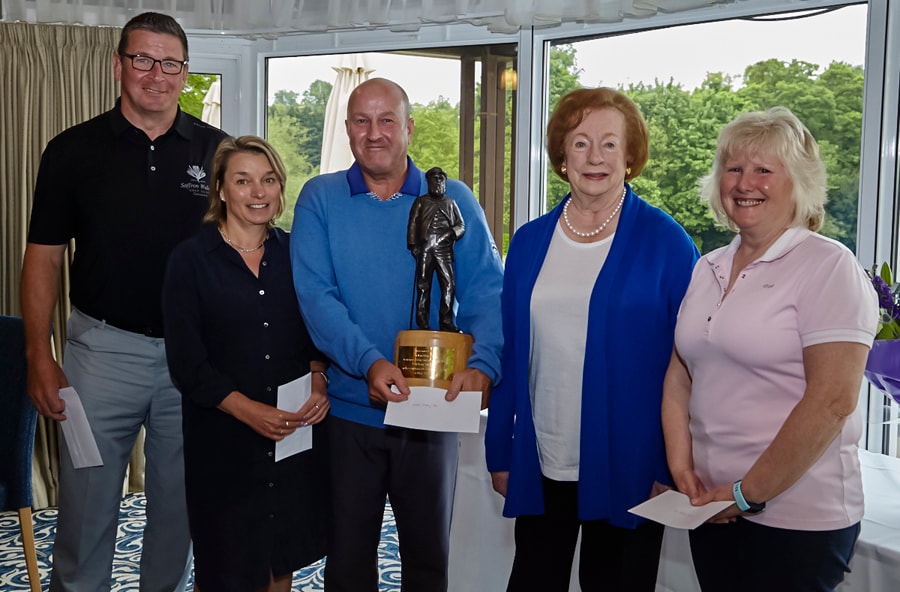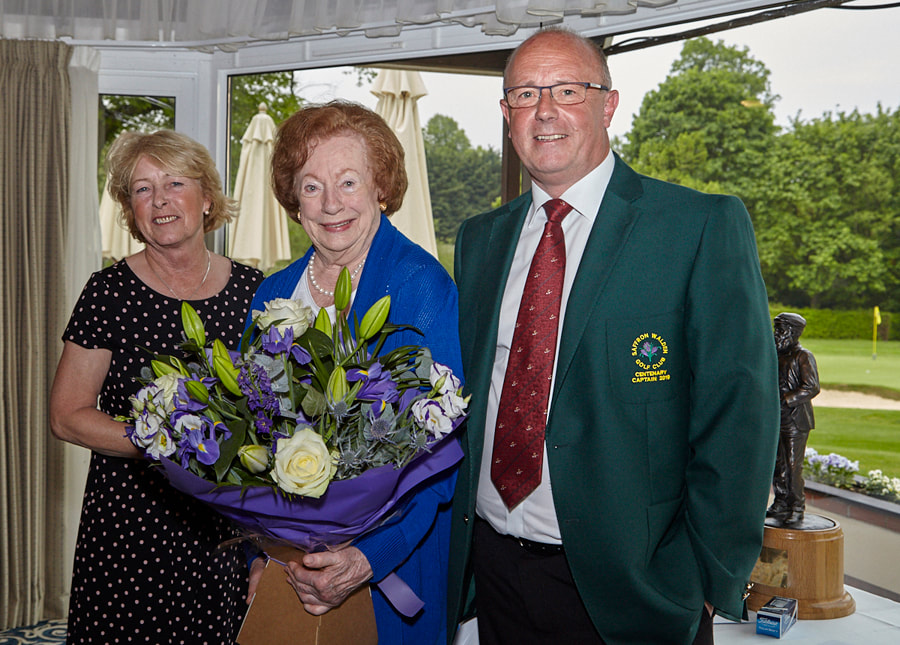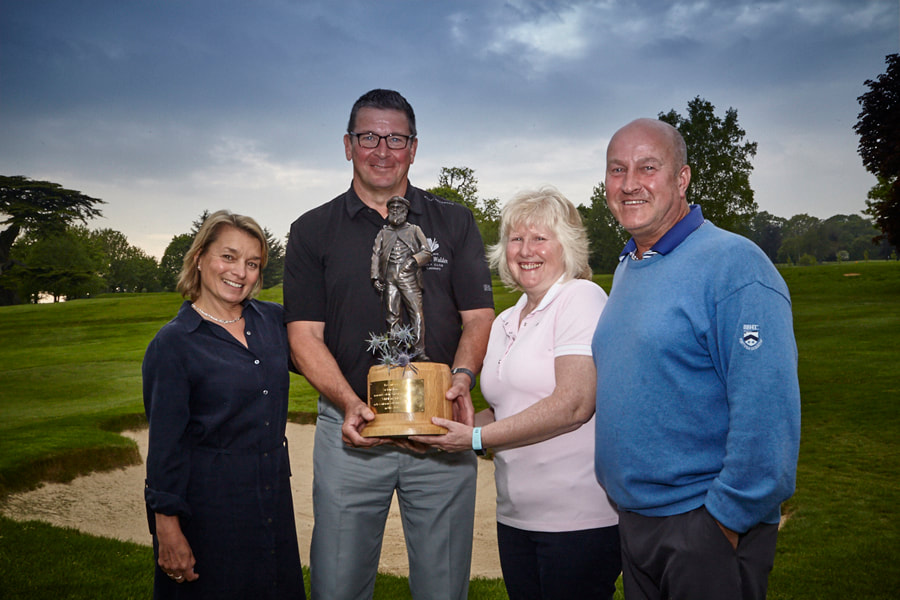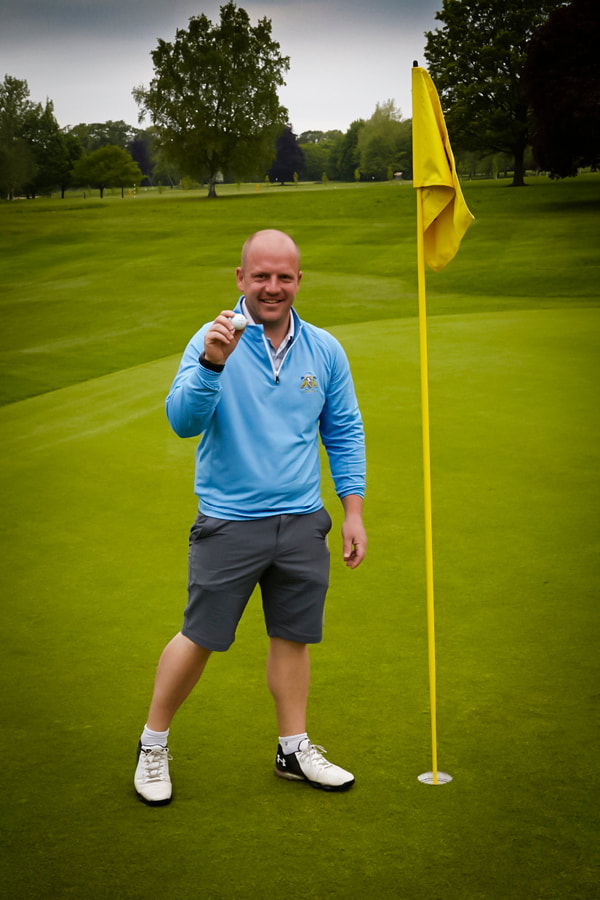|
Last Sunday 28 teams of four played at Safron Walden Golf Club, for the honour of being the Centenary Morrow Trophy holder. Sir Ian Morrow, a past member at the club, presented the magnificent trophy to SWGC in memory of his Great Grandfather "Old Tom" Morris on the centenary of Old Tom's death in May 1908.
Morrow's great-great-grandfather was the renowned Tom Morris who won The Open on four occasions: a fact of which he was very proud. On hand to present the trophy to the "Centenary" winners, was Lady Morrow, Sir Ians widow. Club Captains, Tony Brown & Delia Roberts,also presented Lady Morrow with a bouquet of flowers. To cap the day off, newly appointed Cambridgeshire County B team member Spencer Burlingham, achieved a "Hole in One" on the 18th. Sir Ian, who died in April 2006, was one of the most successful British businessmen of the last 30 years of the 20th century. Yet he was rarely in the limelight during a business career which lasted over 60 years, from 1936, when he qualified as an accountant, until 1998, when he retired from his last public company directorship - of Psion, the electronics group - at the age of 85. But, as he always insisted, "age shouldn't be considered an absolute barrier, any more than youth should be considered an absolute virtue". The only time Morrow hit the headlines was as deputy chairman of Rolls-Royce when Britain's most prestigious engineering firm appointed receivers in early 1971 after the costs of its revolutionary new aero-engine, the RB211, had spiralled out of control. The crisis was so grave that the newly installed prime minister Edward Heath, who had resolved not to save any industrial "lame ducks", was forced to nationalise the firm. Morrow was promptly appointed managing director and, as he told me at the time, knew perfectly well what was wrong. "Engineers invariably tell the board not the real figure for a new product," he said, "but the biggest sum they think the board will accept." In that spirit he soon got the costs under control, ensuring that the engine was not over-engineered - British engineers, he always said, were prone to making the products "too good for the job". Comments are closed.
|
News & blogBrowse our blog pages for details of our recent photography projects and latest news. Archives
January 2021
Categories |





 RSS Feed
RSS Feed
